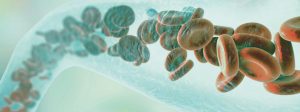By James M. Ray, MD


Understanding Wharton’s Jelly
Wharton’s jelly is a specialized gelatinous substance found in the umbilical cord. Named after the English physician Thomas Wharton, who first described it in the 17th century, this gel-like connective tissue surrounds and protects the blood vessels within the cord. It is composed of a rich matrix of structural proteins, such as collagens, hyaluronic acid, and proteoglycans, providing it with unique characteristics.
Stem Cell Potential
One of the primary reasons Wharton’s jelly is garnering attention is due to its abundant supply of mesenchymal stem cells (MSCs). MSCs possess remarkable regenerative capabilities and can differentiate into various cell types, including bone, cartilage, and fat cells. These cells are considered to be more primitive and versatile than other types of stem cells found in the body. Wharton’s jelly-derived MSCs have shown promise in tissue engineering, cell-based therapies, and immunomodulatory applications.
Therapeutic Applications
Wharton’s jelly-derived MSCs have been studied extensively for their potential therapeutic applications. Researchers have explored their use in treating various conditions, including cardiovascular diseases, neurological disorders, orthopedic injuries, and autoimmune disorders. Studies have suggested that these cells may promote tissue repair, reduce inflammation, modulate the immune system, and enhance the body’s natural healing processes.
Non-Controversial Source
Unlike embryonic stem cells, which raise ethical concerns, Wharton’s jelly-derived MSCs offer a non-controversial source for stem cell therapy. They can be obtained ethically and painlessly from the umbilical cord after a baby’s birth without harming the mother or the child. This accessibility and ethical advantage have made Wharton’s jelly an appealing resource for stem cell research and potential clinical use.
Ongoing Research and Future Possibilities
While Wharton’s jelly and its MSCs show immense promise, further research is necessary to fully understand their capabilities and limitations. Ongoing studies aim to optimize cell isolation and expansion techniques, explore their potential in regenerative medicine, and assess their long-term safety and efficacy. The ultimate goal is to harness the therapeutic potential of Wharton’s jelly-derived MSCs to develop innovative treatments for various diseases and injuries.
Wharton’s jelly, a component of cord blood, harbors a rich source of mesenchymal stem cells with tremendous therapeutic potential. Its regenerative capabilities and non-controversial sourcing make it an attractive option for stem cell research and clinical applications. As scientific knowledge and technologies advance, Wharton’s jelly may play a significant role in revolutionizing the field of regenerative medicine and providing novel treatments for a range of conditions, improving lives in the process.
James M. Ray, MD
James M. Ray, MD is an orthopedic surgeon who graduated Medical School in 1979 from Louisiana State University. Dr. Ray trained in Orthopedic Surgery at Orlando Health, Orlando, Florida. He was a Sports Medicine Fellow at the University of Wisconsin, Madison. He was also an Academic Physician as an Assistant Professor of Orthopedics/Sports Medicine at the University of Kentucky, Lexington. He has a master’s degree in Executive Health Administration from the University of Florida, Gainesville. He has traveled with numerous Sports Teams Nationally and Internationally. He is now interested in treatment and management of Orthopedic injuries, arthritis, and chronic problems limiting function. He specializes in Quality-of-life issues using IV therapies, biologic injectables and immune boost treatments.
Naples Clinic
7385 Radio Road; Ste., 104, Naples FL 34104
(239) 384-9392
www.Naples-Clinic.com
 Southwest Florida's Health and Wellness Magazine Health and Wellness Articles
Southwest Florida's Health and Wellness Magazine Health and Wellness Articles

